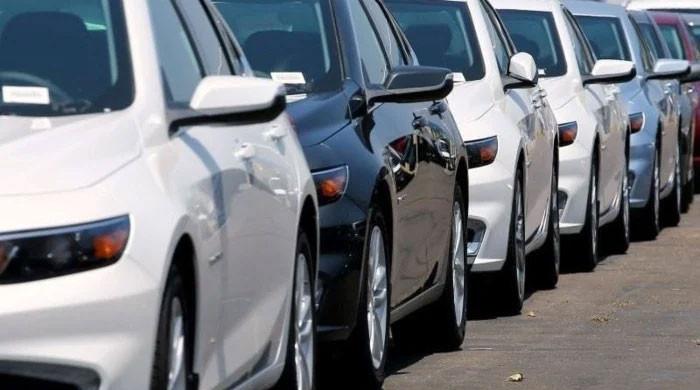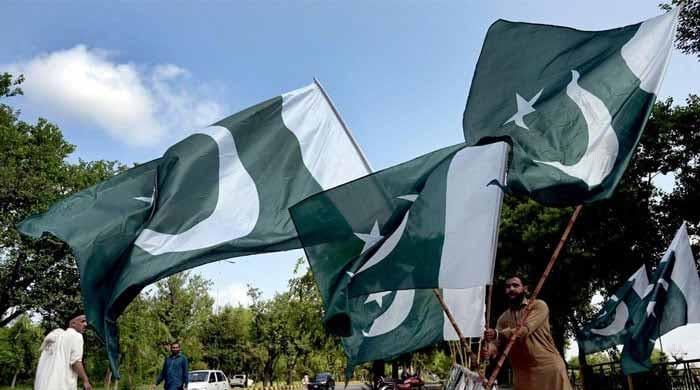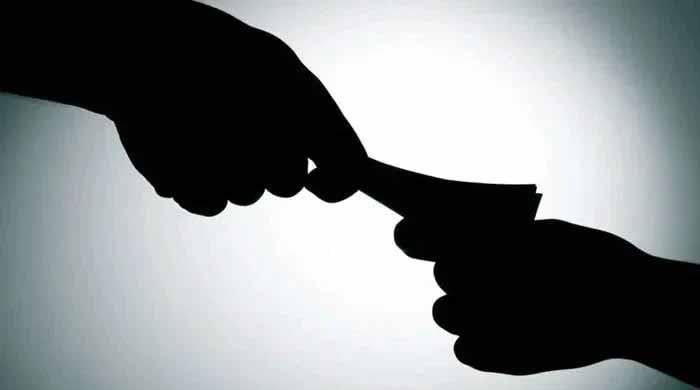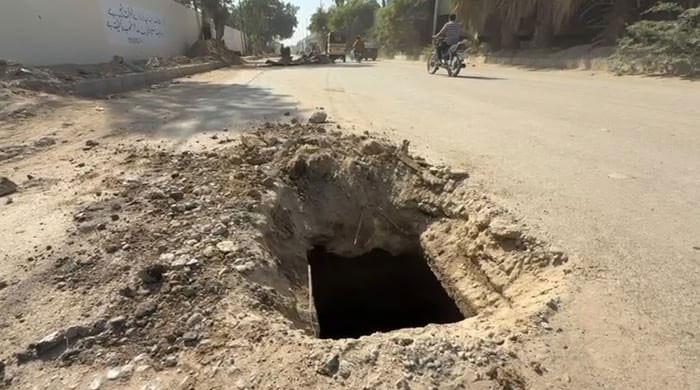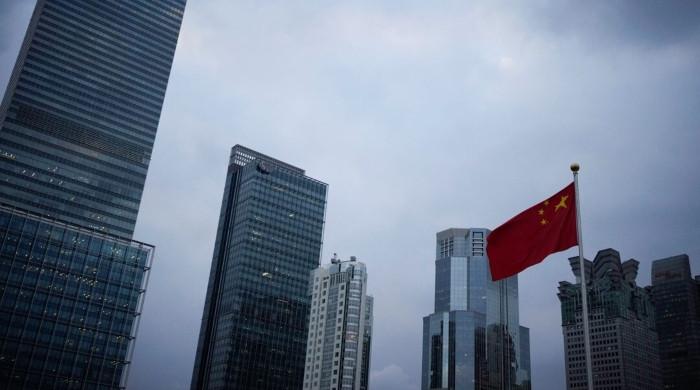Question of political morality
Today, there is more politics to oust PM than to eradicate corruption or set standards of political morality, write Mazhar Abbas
April 24, 2017
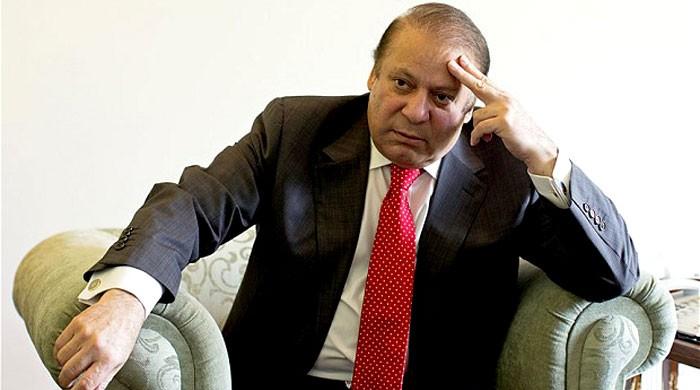
Political morality is a relevant term and not confined to corruption of politicians or rulers alone. Moral questions are important for the growth of a society and a nation like ours, which is by and large politically and intellectually corrupt.
Had Prime Minister Nawaz Sharif stepped down in April 2016 when, for the first time, the names of his children appeared in Panama Papers, and got himself cleared, he could have set a good precedence for others to follow.
But the demand for his resignation is coming from some of those politicians as well, who themselves have not set high moral standards in politics. Today, there is more politics to oust the prime minister than the move to eradicate corruption or set standards of political morality.
For instance, if Pakistan Tehreek-e-Insaf (PTI) Chairman Imran Khan demands Sharif to step down on 'moral grounds', and at the same time accepts a former chief minister of Sindh Liaquat Jatoi, into the PTI folds, who remained associated with Sharif for years, he is not setting a good precedence.
Similarly, if Sharifs blame former military dictator Pervez Musharraf for violating the Constitution and at the same time accept people associated with him for six or seven years, he too loses political morality.
'Lota culture' in our politics has not ended despite some good legislation to discourage this practice. PPP's basic philosophy that 'politics is the game of possibility’, clearly defines that 'morality' in politics and compromises are two different things. In PPP's 'political dictionary’, political morality does not stop them from accepting National Reconciliation Ordinance (NRO) or taking political turncoats.
They linked such questions with ground realities. So, they even pardoned those whom they once considered among Bhutto's killers and also compromised with those whom Benazir Bhutto had named in her letter-cum-FIR, after October 18, 2007 suicide attack on her procession.
Jamaat-e-Islami (JI), the claimant of high moral values, which talks of revolution against the system every other day, could join hands with anyone who could help it get closer to power. On the one hand, they are in alliance with the PTI and, on the other hand, contemplating revival of Muttahida Majlis-e-Amal (MMA), with Maulana Fazlur Rehman, whom they once criticised severely for entering into alliances with the PPP and the PML-N. They even formed electoral alliance with the PML-N in Azad Kashmir.
Thus, the present movement is not against corruption but to oust Sharif, with the only difference that the target has now been shifted from Asif Ali Zardari to Nawaz Sharif, while no one can even talk of 'political godfathers or holly cows.
As I said above, Sharif could have created history had he handed power to any trusted PML-N leader till he got himself cleared. It could have defusedor almost eroded the campaign against him.
Instead of saying, 'I would not stay one day in power if found guilty’, I wish he could have said, 'I resign as the names of my children have appeared in Panama Papers, but I will return after getting their names cleared’. The difference of the two sentences could have made a lot of difference in the question of political morality.
After one year, he allowed the opposition and political analysts to raise question of political morality on him and his children. The decision of the Supreme Court five-member bench has also not given him a clean chit. What if, tomorrow, the joint investigation team (JIT) also finds him guilty? What if tomorrow enough pressure is built on him by the political parties, which themselves don't qualify in the light of the definition of political morality, forcing him to resign or leading to a situation of extra-constitutional step?
Therefore, he has missed the bus, and the only option left with him is to get a clear-cut legal victory, or go to the next elections with a tainted image. There is little doubt that even if Sharif is out, the PML-N is also out, as they have not only strong roots among masses particularly in Punjab, but its policy of visible development has also worked in its favour. Thus, Sharif may be down, but certainly not out.
The PML-N leaders now admit that they, perhaps, misread Imran's aggressive politics. Despite back-to-back defeats and setbacks, he never gave up and the Panama leaks gave him almost a new political life.
He is now in a mood for dharna-2. As Interior Minister Chaudhry Nisar Ali Khan had, through the local administration, given permission for the PTI public meeting in Islamabad on April 28, the party seems in a mood to convert the rally into 'Go Nawaz Go’ movement.
On the one hand, Imran has practically closed the door on any alliance with the PPP in the presence of Mr Zardari, through his Dadu speech, and on the other hand, he has dented the chances of any grand alliance.
It would be interesting to watch that on what political moral grounds, any future alliance is formed. An alliance itself is a compromise on principles, particularly if it aims at just ousting the ruler. It reminds me of the 1977 PNA movement, which was launched for Nizam-e-Mustafa, but ended once Bhutto was ousted through a martial law, and later the PNA joined the late General Ziaul Haq's cabinet.
Accepting moral responsibility required a lot of courage, even if you are not directly involved. Such ethical positions are missing in our society from day one. There is hardly a case where a person sitting at a stronger position had quit on moral grounds.
Nelson Mandela, one of the greatest moral and political leaders of our time, writes in his book ‘Long Walk to Freedom’: “In life, every man has twin obligations... obligation towards his family, to his parents, to his wife and children, and he has an obligation to his people, community and his country.”
He went on to say, “I have walked a long way to Freedom. But, I have discovered the secret that after climbing a great hill, one only finds there are many more hills. I can only rest for a moment, for with freedom comes responsibility. My long walk is not yet ended.”
—The writer is a senior columnist and analyst of Geo, The News and Jang.
Twitter: @MazharAbbasGEO




